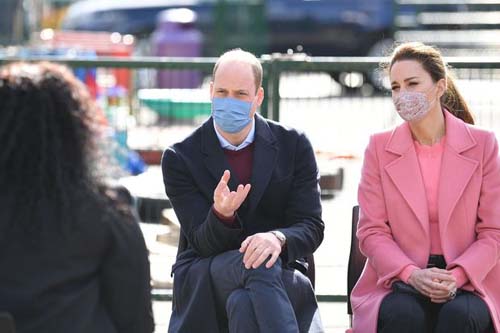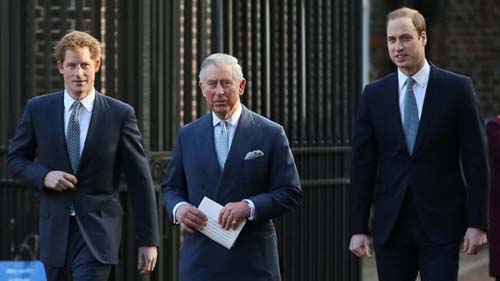
‘We’re not a racist family,’ says Prince William. But it’s not that simple
Rachel C Boyle
London: Since Meghan and Harry’s interview, questions have been raised about the royal family. More specifically, is the family racist? Many viewers were shocked when the Duchess of Sussex told Oprah Winfrey that their mixed-race child’s skin tone had been discussed by a family member, and that “concerns” were expressed by them.
On Thursday, Prince William gave an outright denial. “We’re very much not a racist family,” he told reporters. His response was not surprising and what one would expect.
In fact, though debates about the revelation seemed to be happening everywhere, did it shock me? Honestly, no. I knew as a mixed-race woman that these kind of family conversations would have happened. Why? Because they always do.
As I was growing up, people would constantly discuss what I looked like – and add their assumptions, presumptions and opinions about my skin tone. My own white mother, when carrying me, was repeatedly asked if she was “worried” about “how dark” I’d be. I have regularly been told: “Yes, but you don’t look black”, or “I would never have said that you were black, you just look exotic.”

People believe they have the right to talk about your skin shade, question your heritage and then express their opinions on whether it fits in with their perceived narrative of you. It has happened since I was a small child. So I am absolutely not surprised this conversation happened within the royal family.
Yet for a full answer on race and the royals, we have to look far further back than last Sunday. The institution of the monarchy goes back centuries, and we cannot ignore the royal family’s connections to historical racism and indeed slavery. Countless British monarchs have played a pivotal role in establishing a society that has justified white supremacy and racial inequality.
By the 1770s, when the government first had to overcome the dilemma of ruling a territory with “natives”, racism was firmly established in Britain, upheld and reinforced by the nation’s key role in the transatlantic slave trade. This trade had been pioneered, established and granted royal patronage during the reign of Elizabeth I, and would go on to be adopted by James I and Charles I.
The British slave trade ended in 1807, and slavery in 1833. However, racism would not end with abolition: it was far too valuable. Racism became the handmaiden to the empire. The mythology of race, and white superiority, would become a major ingredient in the establishment of British imperialism. And this historical template of bigotry and prejudice still permeates British society today.
I can attest to this after the reaction to my interaction with the actor Laurence Fox on the BBC’s Question Time in January last year. When discussing the press treatment of Meghan Markle, he denied racism was an issue, stating that the UK was “the most tolerant, lovely country in Europe”. He then went on to say that discussions around racism were “starting to get boring” – and indeed labelled me as racist for pointing out his privilege as a white male.
After this exchange was widely shared on social media, I was bombarded with hate messages – making me acutely aware just how deeply rooted racism is in British society, and what a huge task it is to challenge it. I believe every one of us should be part of this effort, though – and after this week’s events, the royal family is in a position to make a potentially defining response. This could be the beginning of a rebranding of the monarchy and a genuine development of its understanding of the society it represents.
For a meaningful dialogue about racism to occur, it must move away from the tradition of not giving interviews and be seen to contribute to the conversation. It must be seen to actively dismantle the structures of racism with more genuine and ongoing engagement with diverse communities.
The positive impact of the Prince’s Trust – which works with 11- to 30-year-olds to “build their confidence and start a career” – cannot be denied. But this should be just the beginning. The family’s role must extend far beyond the royal patronage of charities and attendance at high-profile events.
If Britain is ever to have a truly non-racist monarchy, the family’s individual members must confront their past and recognise that it is an integral ingredient of who they are. It is time for them to identify racism as an obscene and corrosive social construct. They must clearly acknowledge that it is a feature of the British society they represent.
The first step? To acknowledge the existence of racism within their own family, and to identify the clear racism in the comments made to the Duke and Duchess of Sussex. Only then can they begin to say the monarchy is on a path to becoming truly non-racist.
